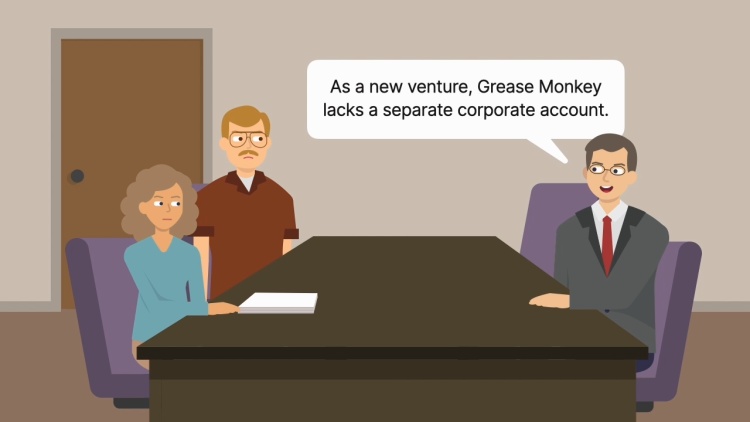Grease Monkey International, Inc. v. Montoya
Colorado Supreme Court
904 P.2d 468 (1995)
- Written by Robert Cane, JD
Facts
Arthur Sensenig served as the president, CEO, and chairman of the board for Grease Monkey International, Inc. (defendant) for eight years. During his tenure, Sensenig defrauded potential investors in Grease Monkey using his position of authority at the company. Sensenig instructed potential investors to make payments to his personal bank account. To persuade Montoya (plaintiff) to invest, Sensenig gave a presentation to Montoya at the Grease Monkey offices. Sensenig did not provide any of the funds to Grease Monkey. Instead, Sensenig kept the money for personal benefit. Sensenig employed a detailed scheme to shield the fraud from detection, including delivery of promissory notes and subsequent interest payments among other fraudulent acts. Montoya filed a lawsuit against Grease Monkey for fraud and misrepresentation (in addition to other claims that were dismissed). The trial court held Grease Monkey liable to Montoya because Montoya reasonably relied on Sensenig’s apparent authority to raise capital for the company as president, CEO, and chairman. The court of appeals affirmed the trial court, finding that Sensenig had acted within the scope of his apparent authority as an agent of Grease Monkey. Grease Monkey appealed to the Colorado Supreme Court.
Rule of Law
Issue
Holding and Reasoning (Erickson, J.)
Concurrence (Mullarkey, J.)
What to do next…
Here's why 907,000 law students have relied on our case briefs:
- Written by law professors and practitioners, not other law students. 47,100 briefs, keyed to 996 casebooks. Top-notch customer support.
- The right amount of information, includes the facts, issues, rule of law, holding and reasoning, and any concurrences and dissents.
- Access in your classes, works on your mobile and tablet. Massive library of related video lessons and high quality multiple-choice questions.
- Easy to use, uniform format for every case brief. Written in plain English, not in legalese. Our briefs summarize and simplify; they don’t just repeat the court’s language.





